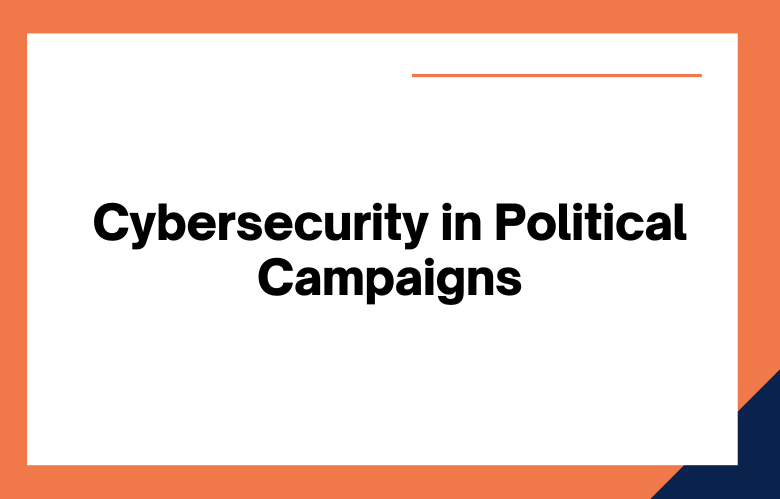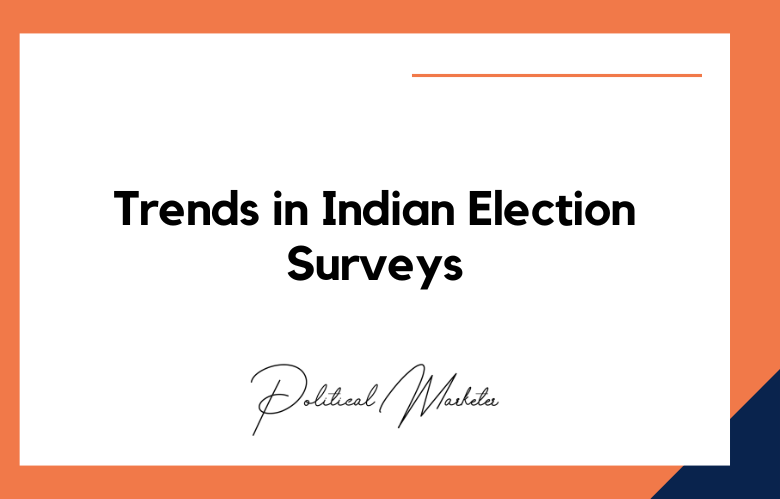In today’s age of technology, political campaigns are fought in the field and online. Candidates increasingly rely on digital marketing, social media, and online fundraising to interact with voters and grow their support.
However, with technology comes the risk of cyber threats that can undermine the integrity of elections and violate the privacy of both candidates and voters.
As such, upholding cybersecurity in political campaigns is crucial in protecting against these threats and ensuring that elections are legitimate and democratic.
What is the Cybersecurity in Political Campaigns?
In today’s world, political campaigns have become more vulnerable to cyber-attacks. With the rise of technology, it has become easier for cybercriminals to access sensitive information that can significantly impact political campaigns.
From identity theft to data breaches, political campaigns are constantly under threat, and it is crucial to have robust cybersecurity measures in place. We delve deeper into cybersecurity in political campaigns, the threats they face, and how to protect against them.
The Scope of cyber threats to political campaigns?
Cyber threats to political campaigns can range from massive data breaches to information manipulation. Hackers can exploit weaknesses in networks and software to gain access to sensitive information, including fundraising data, donor information, and voter information.
They can also manipulate information by creating fake websites, emails, social media accounts, and deepfake videos. In the 2016 U.S. presidential election, Russian hackers targeted the Democratic National Committee and successfully released sensitive information.
These attacks raised concerns about the manipulation of future elections and the need for political campaigns to prepare for and protect themselves against cyber attacks.
Measures to protect against cyber threats?
Political campaigns must ensure their cybersecurity protocols are current and satisfactory to prevent hackers from accessing their systems.
They must use secure platforms for communication, fundraising, and data storage campaigns and educate their team members about cybersecurity best practices, such as using strong passwords and being wary of phishing scams.
Campaigns also need an incident response plan to respond quickly and effectively during a security breach. When applied correctly, these measures can help minimize the damages caused by cyberattacks.
What is the impact of cybersecurity attacks on political campaigns?
The impact of cyber attacks on political campaigns can be devastating. Not only can it lead to loss of data, but also loss of trust.
The public and potential funders may lose confidence in candidates whose campaigns have been hacked. In addition, candidates may face legal consequences if they fail to safeguard the sensitive information of their supporters adequately.
Cyber attacks can also impact election results, as voters may question election integrity if there is evidence of cyber tampering. Therefore, political campaigns must take cybersecurity seriously to ensure the overall integrity of the democratic process.
Risks of Cyber Threats in Political Campaigns:
Political campaigns are incredibly vulnerable to cyber threats. Hackers can access personal information and fundraising data and even manipulate social media accounts.
Moreover, cyberattacks that influence election outcomes have grown increasingly common, with foreign actors such as Russia being accused of interfering in various countries’ elections.
Ensuring cybersecurity in political campaigns is a meaningful safeguard against these threats.
Cybersecurity Measures to Protect Campaign Systems?
Campaign managers must take steps to secure their systems and data. Training staff in cybersecurity awareness is essential.
Measures include two-factor authentication, safeguarding sensitive data, limiting system access, and email security.
Regular system backups and updates, security audits of candidate websites and social media platforms, and a secure donation portal are also necessary. Educating the public about reliable information sources and fact-checking is also critical.
Cybersecurity challenges for political campaigns?
Cybersecurity Challenges:
Political campaigns face cybersecurity challenges, starting with the sheer volume of data they collect and store.
Campaigns gather massive heaps of data, including voter registration files, donor lists, polling data, and social media interactions.
This means a wealth of valuable information could attract hackers’ attention. Besides, campaigns often use third-party vendors, such as polling firms or data brokers, which pose additional risks.
These vendors may have different levels of cybersecurity practices or may need proper vetting before accessing sensitive data.
Another challenge is the prevalence of phishing attacks. Cybercriminals often use fake emails or websites to steal campaign credentials or spread malware.
These attacks can be particularly damaging if they gain access to a campaign’s email system or social media accounts, which could be used to spread disinformation or embarrassing information.
Campaigns may face the risk of ransomware attacks, where hackers lock down critical data and demand payment to unlock it.
Best Practices:
Political campaigns must follow best practices to mitigate these risks, starting with securing their data.
This means classifying and encrypting sensitive information, implementing access controls, and using multi-factor authentication.
Campaigns should also create an incident response plan to respond quickly and effectively if an attack occurs. This plan should include regular data backups to recover data in case of ransomware attacks.
Campaigns should also develop policies and procedures for third-party vendors, review their contracts, and conduct regular security audits.
Training staff and volunteers on cybersecurity hygiene, such as password management, email verification, and social engineering, is essential to prevent phishing attacks.
Campaigns should engage with cybersecurity experts and seek advice on policy decisions, such as adopting encryption technology, establishing secure communication channels, and avoiding risky behaviors such as using public Wi-Fi or personal devices.
Technology Solutions:
Technology solutions can also help enhance the cybersecurity of political campaigns.
For example, security information and event management (SIEM) tools can monitor network traffic, log files, and system configurations, identifying suspicious activities or anomalies.
Endpoint detection and response (EDR) solutions can detect and isolate malware infections, limit damage, and provide remediation actions. Cloud security and resilience capabilities can protect data and applications from physical and logical failures, ensuring business continuity.
Campaigns should also consider privacy-enhancing technologies, such as differential privacy or homomorphic encryption, which enable data analysis without revealing individual-level data.
Developing a cybersecurity culture in campaigns is essential, where cybersecurity is not an afterthought but an integral part of daily operations.
Case Studies:
Several recent events have underscored the importance of cybersecurity in political campaigns. For example, in 2016, the Russian government allegedly interfered with the U.S.
Presidential election, exploiting vulnerabilities in voting systems and social media platforms. In 2019, the Canadian federal election suffered a series of cybersecurity incidents, including a foreign-sponsored hacking attempt against the Conservative Party.
Cybersecurity became political, raising questions about transparency, accountability, and democracy’s resilience.
However, there are also examples of successful cybersecurity measures in political campaigns.
The Democratic National Committee revamped its cybersecurity posture after the 2016 election, implementing multi-factor authentication, encrypting data at rest and in transit, and conducting simulated phishing exercises.
Also, the European Union Agency for Network and Information Security (ENISA) has produced guidelines for securing electoral infrastructure, including security operation centers, network segmentation, and access and identity management.
Conclusion:
Cybersecurity in political campaigns is a responsibility and a duty to uphold democratic elections. Campaign managers must prioritize adopting measures and procedures to safeguard campaigns in every aspect.
Trust is essential to credibility, and movements observing ethical, legitimate, and secure practices will attract more supporters to their cause. As technology evolves, we expect cyber threats to grow in complexity, highlighting the importance of staying vigilant and always being prepared to protect against threats.
Call: +91 9848321284
Email: [email protected]











